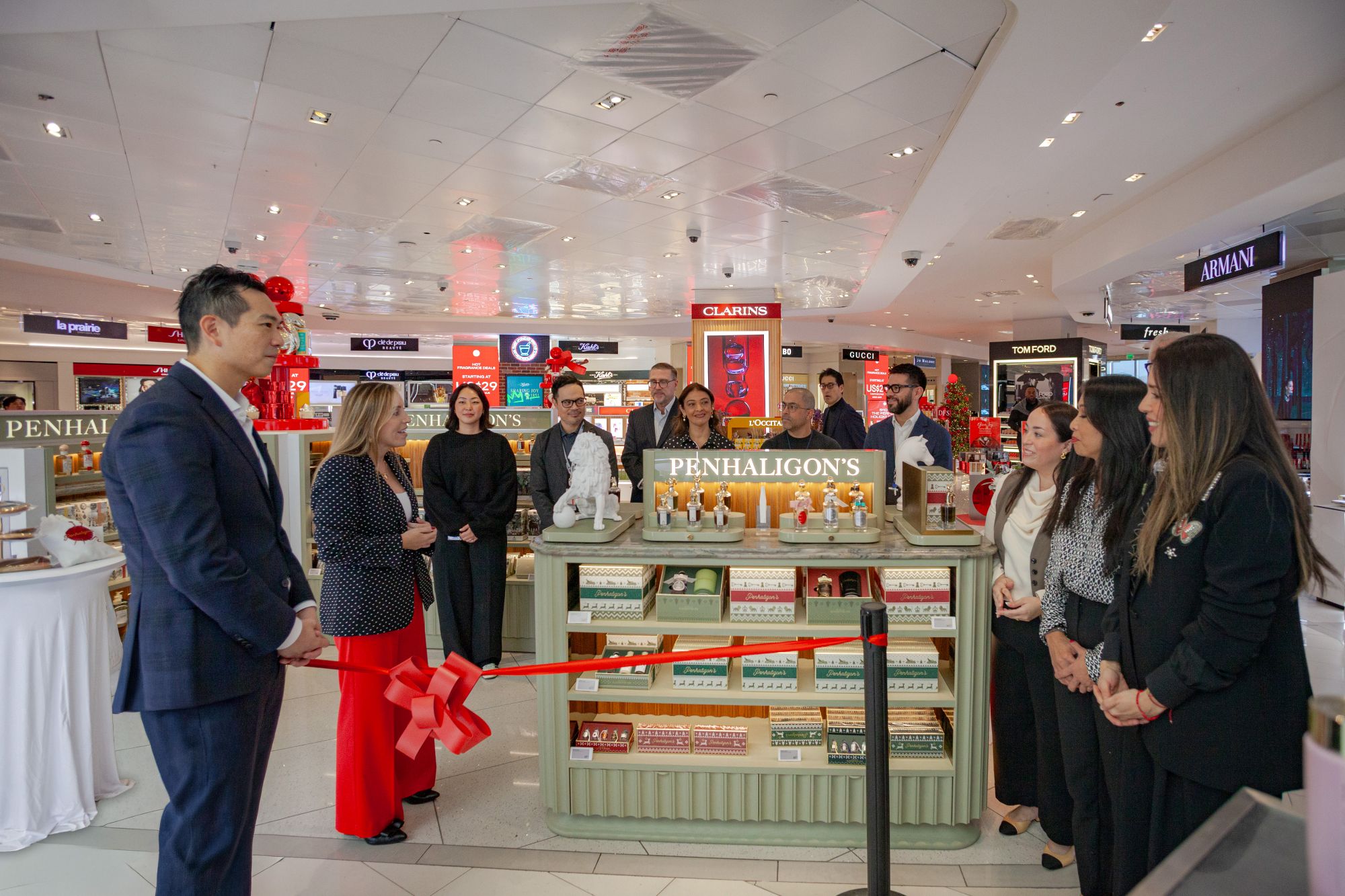November 7, 2025
L’Occitane en Provence: 50 years of purposeful beauty and pioneering travel retail
GTR Magazine sat down with L’Occitane Group's Mona L’Hostis at this year’s TFWA Cannes to discuss the anniversary, as well as the brand's past, present and future

With the 50th anniversary of L’Occitane en Provence around the corner, Global Travel Retail Magazine sat down with Mona L’Hostis, Global Travel Retail Marketing Director, L’Occitane Group, at this year’s TFWA World Exhibition & Conference in Cannes. Reflecting on the Group’s founding beauty brand’s defining moments, L’Hostis connected the past with a future firmly rooted in purpose and innovation.
Founded in 1976 by Olivier Baussan in Provence, L'Occitane en Provence – or Maison L’Occitane en Provence, as it is also now known – first captured consumer attention with rosemary essential oil. Supported by the vision and leadership of Reinold Geiger, who began investing in the brand in 1994, the business evolved from a local Provence enterprise to a global beauty house. L’Occitane en Provence was among the first Western brands to meaningfully expand into Asia, securing a strong and loyal following across the region, a competitive advantage that remains today.
Alongside global expansion, two milestones stand out for L’Hostis: the pioneering launch of eco-refills in 2008 and the Group’s achievement of B Corp™ certification in 2023, now held across its brands, L’Occitane en Provence, Elemis, Erborian and Dr Vranjes Firenze. “These decisions reflect our long-term commitment to doing business differently,” she noted. The Group will undergo recertification in 2026, as part of the rigorous three-year B Corp process.
“It’s an evolution, not a revolution”
When asked how the brand’s identity has evolved, L’Hostis emphasized that while Maison L’Occitane en Provence has continued to modernize and innovate, it remains authentic, and stays true to its roots in Haute Provence. “As part of our Maison’s next phase, the product packaging is becoming more refined and elegant but with a nod to our heritage. For example, the new design for our bottles is reminiscent of traditional Provençal stone arches and arched wooden doors. Haute Provence, with its authenticity and untamed beauty continues to inspire us. We always consider the core values instilled in L’Occitane en Provence by Olivier, its eco-pioneering founder, and want to build on his legacy with contemporary relevance. It's an evolution, not a revolution.”
Sustainable innovation and fair trade certification
When it comes to enhancing the practice of sustainable innovation, L’Hostis pointed out that refill innovation remains a core pillar. L’Occitane has expanded its refill program and increased its use of recycled materials. Next year, premium refillable glass jars will be phased in across domestic body creams first with Shea butter in January, and Almond in April. Spring 2026 will also see the introduction of further refill formats across key franchises. “Refills have been part of our story long before sustainability was a global expectation,” L’Hostis shared. “We are accelerating formats across core lines and adapting them for travel retail.”
In travel retail, refill assortments are curated, but the brand is actively expanding availability in priority doors and in partnership with CSR projects built by retailers. “Travelers are increasingly conscious and curious, and want responsible luxury,” she said. “Our role is to make sustainable choices desirable and accessible.”
Beyond its B Corp™ certification, L’Occitane en Provence is also strengthening long-term fair-trade partnerships to support communities and safeguard biodiversity. After gaining fair-trade certification for its Shea supply chain in 2009, L’Occitane en Provence has since been awarded 100% fair-trade certification of its ingredients for its Verbena, Rose and Cade collections through the Fair for Life program, and plans to achieve certification for all of its iconic product lines by 2026. “We previously only worked toward fair-trade certification in developing countries; however, now we’re pursuing it for French ingredients too. This bears testament to the value we place on our local producers, and our desire to support them as they navigate economic and environmental challenges,” she added. “Sustainability is a journey of continuous improvement, not a campaign. It is deeply embedded in how we source, create and operate.”
A focus on the future
Discussing how the brand’s values will guide strategy in the future to stay relevant in a rapidly changing beauty and wellness consumer landscape, L’Hostis noted that new generations are still searching for authenticity. “They want storytelling and meaningful self-care rituals. We offer a holistic lifestyle rooted in nature, sensorial textures and well-being, a timeless offering that speaks to all ages.”
While L’Occitane Group’s brand portfolio varies in performance from one country to another, L’Hostis emphasized that it partners specifically in the US with micro-influencers to drive meaningful Gen Z engagement. “We have the right portfolio and values for Gen Z. Now it’s about visibility and emotional connection. We’re building genuine affinity, not just awareness.”

A devotion to scent
Made up of 14 fragrances, along with lotions, shower gels and body creams, L’Occitane en Provence’s newly reimagined unisex fragrance collection, Flora Orchestra, takes inspiration from the Maison’s cultural history. According to the company, each scent’s key ingredients shapes two elements: natural harmonious colors and ingredient names that honor the brand’s roots.
“Flora Orchestra is the first chapter of the brand’s reinvention, drawing on our Provençal heritage and savoir faire, but with a modern sensibility,” said L’Hostis. “We see it as a piano of fragrances: each note can stand alone or be layered to create a personal harmony.” This approach taps into the continued rise of fragrance personalization and layering in travel retail.
Celebrating in style
Although L’Hostis remained discreet about plans to celebrate L’Occitane en Provence’s anniversary, she said a travel retail-exclusive product will be released in line with the brand campaign to mark its big 5-0. “We want this celebration to feel joyful, global and inclusive,” she shared. “Travel retail will play a special role, and it will include a special edition available only in the channel.”
The Group will also spotlight Sol de Janeiro’s momentum in 2026, bringing bold, playful activations to travel retail. “Sol de Janeiro has reenergized the body care and fragrance category with joyful scents and a positive spirit,” L’Hostis noted. “Our portfolio is strong and balanced, so our focus now is deepening existing brands rather than expanding.”
Beyond celebrating L’Occitane en Provence’s milestone, she said travelers should prepare for an exciting 2026 full of activations for brands such as Erborian and Sol de Janeiro. The latter, a skincare and fragrance brand inspired by Brazilian beach culture, expects to remain ahead of the competition by proposing playful new ways of pushing the fragrance category. With a strong and balanced portfolio in place, the Group is continuing to focus on its core brands as it builds on their dynamic growth.




